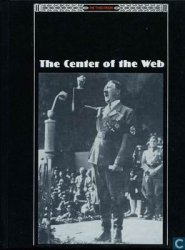Medieval justice had severe punishments, such as branding or mutilation, for serious crimes. For less serious offenses, however, or for crimes committed by persons of high social rank, fines were generally imposed. Later, the practice of judicial pilgrimage replaced fines as a punishment.
First introduced in Ireland during the 500s, judicial pilgrimage might seem like an easy sentence. But this was a time when travel in any form was highly uncomfortable—especially if one had to walk barefoot and in chains, as most criminals did. Persons accused of murder often had to walk with their murder weapons chained to them, and these might come in handy, since the roads of Europe were teeming with bandits and cutthroats.
YAWn) in France, later to be idealized as the perfect knight; Godfrey's brother Baldwin of Boulogne (boo-LAWN); and Raymond IV, count of Toulouse (tuh-LOOS).
The Peasants' Crusade
Alongside these figures were men who possessed neither wealth nor official power, but who could command masses of followers. Most notable among the latter was Peter the Hermit (c. 1050-1115), a French ascetic who mobilized thousands with his speeches; and Gautier Sans Avoir

Pope Urban II launched the First Crusade in 1095 as an attempt to seize the Holy Land from the Muslims. Reproduced by permission of the Corbis Corporation.
(GOH-tee-ay SAWNZ a-VWAH, "Walter the Penniless"), a French knight. These two led the disastrous Peasants' Crusade (1096-97), which shadowed the official First Crusade.
The armies of peasants first made a shameful name for themselves in 1096, when they massacred countless German Jews as "enemies of Christ," then helped themselves to the Jews' possessions. From there they headed southeastward in a traditional pilgrims' route that took them through Hungary. When they entered
Byzantine territory at the city of Belgrade, the frightened Byzantines tried to turn them back, so the peasants began looting and pillaging. They were attacked by troops in Bulgaria, and by the time they reached Constantinople, their numbers had been reduced by one-quarter. They began conducting raids against Byzantine homes and churches, so Emperor Alexis wisely offered to ferry the entire peasant army across the strait called the Bosporus (BAHS-pur-us) and into Anatolia. They never got much farther: a local Turkish leader led the "Franks"—the Turks' name for the Europeans—into a trap, and most of them died. Peter himself, away in Constantinople to seek aid from Alexis, survived.




 World History
World History









